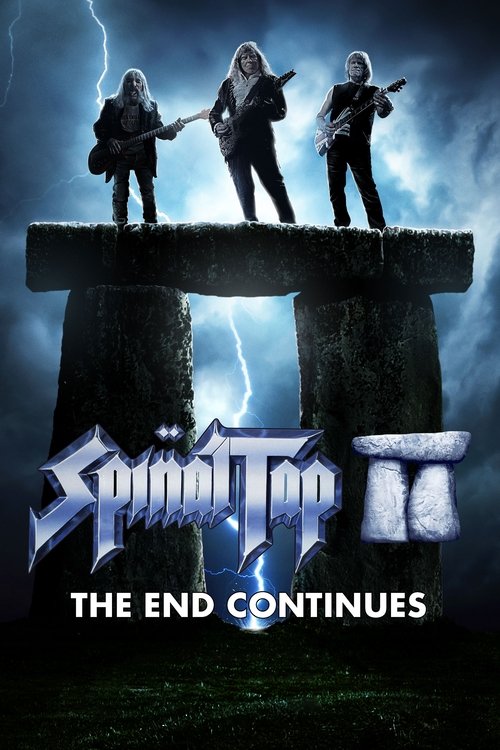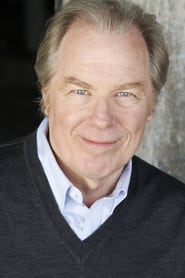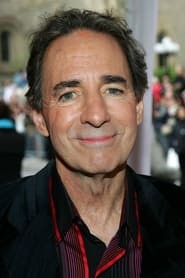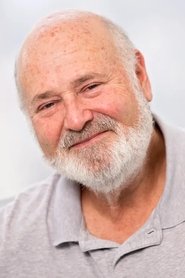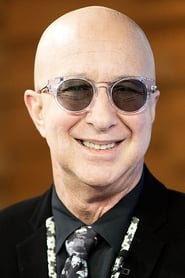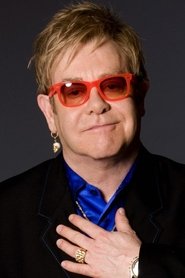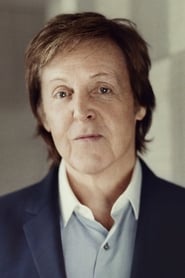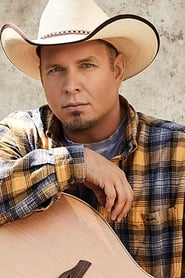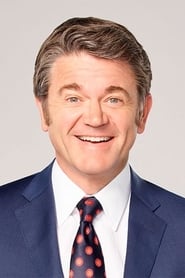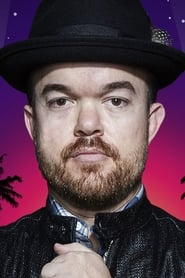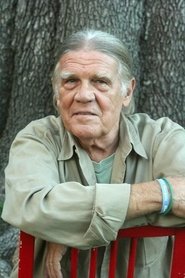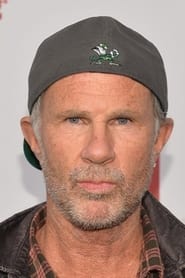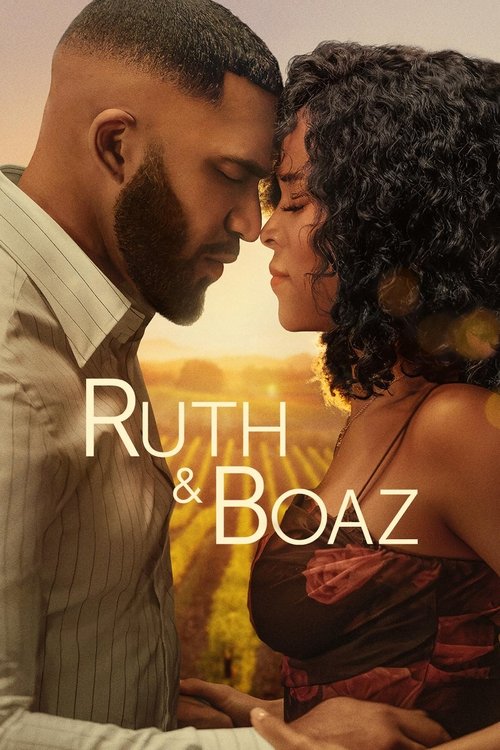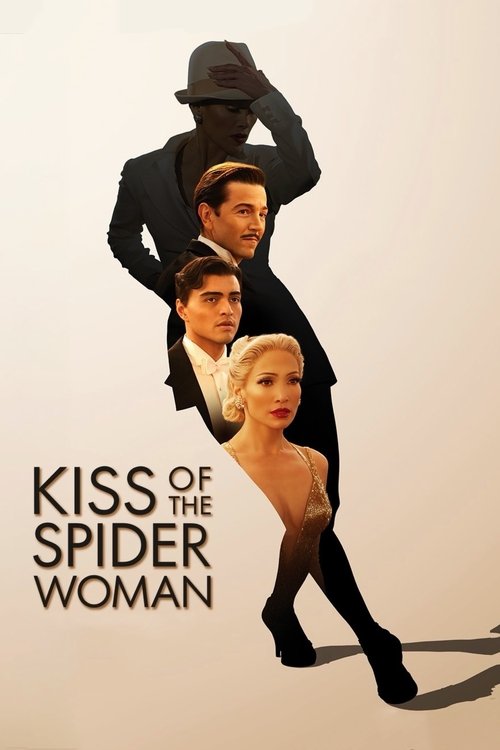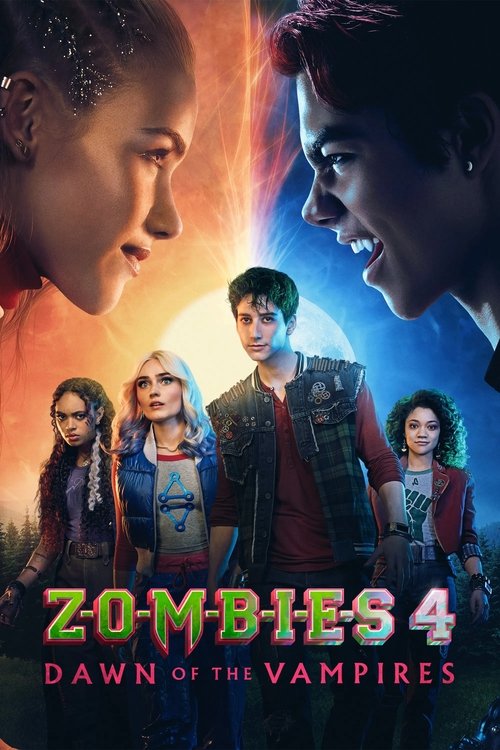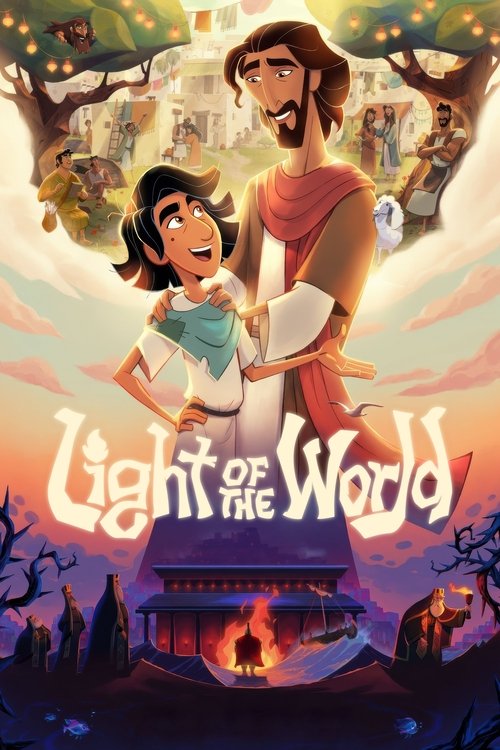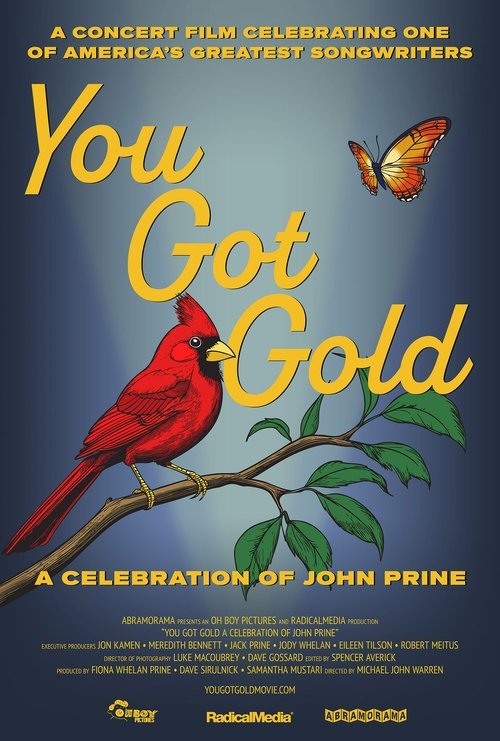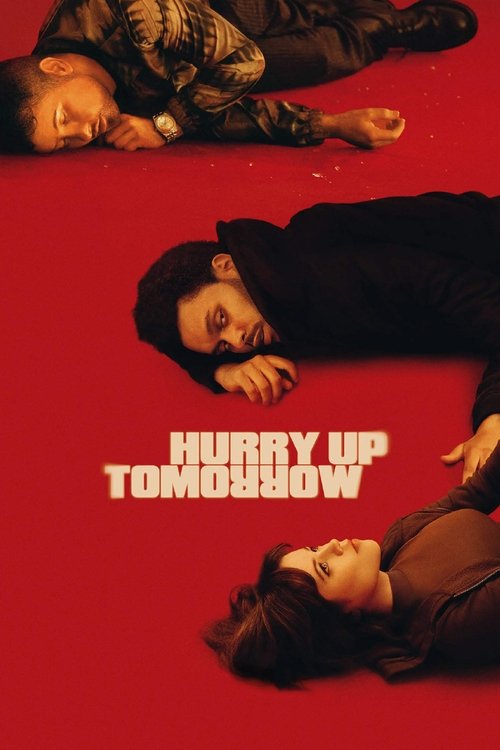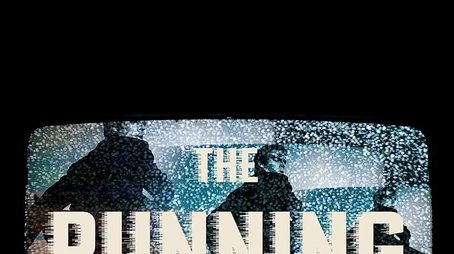
Ask Your Own Question
What is the plot?
The film opens with documentarian Martin "Marty" DiBergi returning to Spın̈al Tap. Forty years after his first film about the band, he arrives to record what he frames as the group's reunion and final performance. Marty meets Hope Faith, the grown daughter of Ian Faith, Tap's original manager, at Ian's old office. Hope hands Marty a copy of the Faith estate documents and shows him a contract buried in the paperwork: Ian put a clause into the band's original deal obligating Spın̈al Tap to perform one more concert whenever the family requests it. Hope explains that she inherited that legal obligation and, with some prompting from Marty, decides to enforce it; she wants Tap back onstage one last time.
Marty tracks down Nigel Tufnel at a storefront where he sells artisanal cheeses and vintage guitars. Nigel now lives with his girlfriend Moira; they run the cheese-and-guitar shop and Nigel plays rhythm guitar in a neighborhood folk group. He surprises Marty by agreeing to consider the reunion, but he stresses that he has largely left behind the trappings of rock stardom. Marty then visits David St. Hubbins at a modest studio where David produces music beds for true-crime podcasts and composes on-hold recordings for call centers. David's domestic life has shifted: his wife Jeanine has become a nun, and David juggles odd production gigs while still identifying as a musician. The last original member Marty finds is Derek Smalls, who runs a glue museum. Derek leads visitors through displays of historic adhesives and, in one clumsy sequence, manages to get the tip of a glue bottle lodged up his nostril; he squeezes and shakes it to no avail until a shop attendant retrieves it. Derek tells Marty that, between curating the collection and composing, he has written a large-scale symphonic piece titled "Hell Toupee."
As Marty assembles the three former bandmates, tensions surface immediately. Although Nigel and David have a long shared history of partnership, they argue about old grievances and current priorities. Derek, who still identifies strongly with the band's theatrical instincts, pushes for a grand finale. All three agree to the reunion after Hope produces Ian Faith's contractual document, but they confess they have no drummer: nearly every drummer Spın̈al Tap employed over the years "mysteriously" died under different circumstances, and nobody in the film identifies a perpetrator or offers specific causes for those deaths. The group accepts that they need a new percussionist and begins to look for one.
Marty and the trio find a promoter named Simon Howler, a flashy, morally flexible agent who claims to understand the business side of a comeback even as he proves incapable of hearing the music itself. Simon secures an arena date for the band by taking over a slot that recently opened when another act, parodied in the paperwork as Stormy Daniels, vacates the venue. Simon promises media attention and a big payday, but his methods and behavior unsettle the band; he funnels them through glossy pitches, tasteless staging proposals, and amateur theatrics. When the band asks him to find a drummer, he phones a string of famous names. Questlove, Chad Smith, and Lars Ulrich each decline to join. Auditions that follow at a rundown rehearsal space go badly: prospective players either bomb technically or swagger without regard for the group's idiosyncrasies. Then a young drummer named Didi Crockett walks in.
Didi arrives with energy and a confident, raw sound. She plays with finesse and a sense of humor, demonstrating fills and grooves that fit Spın̈al Tap's old material while injecting fresh power. The band is surprised and impressed by her technique; she is the only applicant who meshes with their rhythms and eccentricities. They hire Didi. At the same time they bring on board CJ "Caucasian Jerry" Vanston as a keyboardist to round out the live sound. The make-up of the touring group finally feels workable.
On the personal front, Marty reconnects with figures from the band's past. Their former manager Bobbi Flekman has retreated into Buddhism, explaining that the stress of managing Spın̈al Tap pushed her away from commercial show business. Artie Fufkin, once a bright-eyed publicist for the group, has given up PR for used cars and now sells vehicles at a suburban lot. The band moves into a brooding, neglected old mansion that is marketed as a "ghost house" tourist attraction. As the quartet settles in to rehearse, tourists stream through the rooms with "ghost meters" and flashlights. For dinner, the housekeeper serves a whole grilled alligator, presented at the long table while visitors photograph haunted exhibits. The band eats with shrugs and forced cheer as ghost-hunters take selfies nearby.
Rehearsals proceed unevenly. Nigel and David struggle to find their old musical chemistry: they stumble over phrasing, argue over arrangements, and reveal lingering resentments. Derek brings new material and theatrical ideas; he composes a novelty song called "Rockin' in the Urn" and advocates for big visual moments. During a lull in rehearsal, Nigel shows Marty a strange modification he has made to a favorite guitar: inside a small cavity in the instrument lives a wedge of cheese and an attached grater, a private eccentricity Nigel explains as a comfort. Marty records Nigel's explanation on camera.
Public relations setbacks follow. The Rock and Roll Hall of Fame refuses the band's nomination, sending a curt rejection letter that the band receives with outrage; the letter includes a blunt dismissal stamped with an expletive. Outraged, Hope and Simon propose creating a Spın̈al Tap Hall of Fame of their own, commissioning plans for a building whose stylings resemble an IHOP franchise and include exhibits celebrating the band. They show mock-ups that feature the group prominently, but the designs strike the members as absurd even as they take the publicity seriously.
Celebrities visit the rehearsals. Paul McCartney appears unannounced in the mansion's music room. He sits with Nigel and David, listens to "Big Bottom," and offers concrete musical advice--specific thumb placements, tempo adjustments, and a suggestion about dynamic interplay. Afterward Paul tells Marty candidly that he finds "Big Bottom" to be "almost literature," a comment the camera records. Elton John drops by later; he arrives in a flamboyant suit, sits at a spare piano, and performs an earnest rendition of "Flower People." Elton agrees to join Spın̈al Tap onstage to play keyboard and sing on their climactic staging of "Stonehenge." Simon, exasperated by Elton's theatrics and expense, grumbles but accepts the star's involvement because of the anticipated publicity.
Production decisions grow increasingly baroque. The stage manager devises a massive prop for "Big Bottom": an outsized sculptural rear end that will descend above the stage and emit amplifying noises. During a technical rehearsal the prop is fitted with sound effects that produce loud flatulent sounds, which irritate the band. Didi, concerned for the balance of sound and sightlines, asks to have her drum riser moved closer to the front of the stage, nearer to the three founding members, so she can lock in with the trio. The stage crew repositions her platform, which creates a precarious spatial arrangement relative to the larger set pieces.
Tensions intensify among the players offstage. Derek attempts to flirt with Didi in the green room. He makes a clumsy pass and, when rebuffed, Didi calls her girlfriend into the room to make her discomfort clear. David visits the tour manager's office and accuses Nigel directly of having had an affair with Jeanine, David's wife-turned-nun. Nigel vehemently denies David's accusation. The friction sends David into a brooding state that affects his playing.
Simon pressures the band in other directions. He hires a chirpy, high-energy personal trainer and insists the members participate in a vigorous fitness regimen. He wants them to move and dance more like modern pop acts, even suggesting K-pop-style choreography to make their comeback trendier. The band resists. In a private meeting, Simon nonchalantly proposes a lethal publicity stunt: he suggests that at least one member should die onstage so the band could profit from the ensuing commemorations and tribute merchandise. The members recoil; Simon then flees the tour without warning, telling staff he must take a sudden trip to meet his birth mother. His abrupt departure leaves the group without a promoter and forces others to pick up the logistical slack.
With the performance date approaching, David breaks down emotionally and walks the streets of New Orleans to collect his thoughts. He encounters a Black bluesman on a corner, playing a silhouette of a melody on a battered guitar. The blues tune triggers memories of nights on the road with Nigel. In the streetlight David watches the musician and, on impulse, stops to listen for several minutes. Later, back at the mansion, David confronts Nigel and says he forgives him; Nigel, again, denies any infidelity. The members move on to focus on the performance.
On the night of the show, the arena fills. The audience greets Spın̈al Tap with a roar. The band plays through a set of classic songs and newer material, and the crowd responds to the familiar riffs and campy theatrics. For "Big Bottom," the oversized posterior prop descends and the audience laughs at its flatulent sound effects; the band performs the number with sardonic relish. During the climactic "Stonehenge" sequence, the stage team prepares to incorporate a miniature monolith in elaborate staging. Elton John sits at a grand piano placed near the front of the stage to play the piano parts for the sequence; crew members lift a large stone replica from above.
Didi's drum platform has been moved forward as requested, placing it directly under the suspended stone. As the song builds, the stone lowers precariously. Two stagehands dressed in druid robes--tiny actors hired for the theatrical gag--maneuver near the base of the rig. Their movements collide; the two little druids accidentally bump into each other and lose balance. One of them strikes a support cable with a staff, loosening a securing mechanism. The stone tilts. It slides off its hoist and crashes down. The monolith slams into the stage, crushing the grand piano, burying Elton at the instrument, and striking Nigel, David, and Derek. Elton yells in pain and anger, screaming "Fuck Spinal Tap!" as crew members rush to the fallen instrument and the prone musicians.
Emergency responders flood the venue. The stretcher crew stabilizes Elton and the three band members and loads them into ambulances. The camera follows the group to a hospital where surgeons and nurses treat injuries. The film places the survivors in a ward: Elton wakes, breathless and profane; Nigel, David, and Derek are bandaged and groggy from painkillers. Hospital staff monitor their vitals, apply casts and staples, and keep the group under observation. The film records the trio in recovery: they trade weak jokes, bicker over setlists, and suffer the indignities of sudden convalescence.
While convalescing, secrets surface. Derek admits in a private conversation with Marty that he was the one who had the affair with Jeanine, contradicting David's earlier accusation toward Nigel. Derek explains the encounter directly: he acknowledges that he slept with Jeanine, apologizes for the betrayal, and tries to account for why he kept the liaison hidden. The admission reshapes the group's understanding of past events but does not produce dramatic reconciliation; the band processes the confession in the sterile hush of the hospital room.
As the band members convalesce and paperwork piles up--insurance claims, venue liability forms, and media inquiries--the film shifts to its final public moments. Marty visits Didi at a quiet restaurant and congratulates her on surviving the ordeal and on joining Spın̈al Tap as the only living drummer associated with the reunion performance. Didi sits at the table with a bowl of fruit and a small slate of nuts; she smiles and discusses touring logistics in a measured voice. Mid-conversation, she begins to choke on a piece of food. Marty immediately stands and performs the Heimlich maneuver. The camera captures his specific movements: Marty wraps his arms around Didi's waist, makes an upward thrust, and watches as she coughs. The sequence freezes on a frame of Marty mid-thrust, Didi's face taut, and a waitress rushing over. The film ends on that suspended image, leaving the exact outcome of the Heimlich maneuver and Didi's fate unresolved on screen.
More Movies Like This
Browse All Movies →What is the ending?
The ending of Spinal Tap II: The End Continues shows the reunited band Spinal Tap successfully performing their final concert, overcoming personal and professional conflicts, with each main member--David St. Hubbins, Nigel Tufnel, and Derek Smalls--finding a form of closure in their careers and relationships.
Expanding on the ending scene by scene:
The film culminates in the preparation and execution of Spinal Tap's final concert, which is the central event around which the reunion revolves. The band members--David, Nigel, and Derek--have been estranged for years, and the documentary filmmaker Marty Di Bergi captures their journey back to the stage.
The first scene of the ending sequence shows the band arriving at the concert venue, visibly tense but determined. They are greeted by a mix of old fans and music royalty, including appearances by Paul McCartney and Elton John, who underscore the significance of this final show. The atmosphere is charged with nostalgia and anticipation.
Next, the band members confront their personal issues backstage. David and Nigel have a brief but heartfelt conversation about their past disagreements and the toll their careers have taken on their friendship. Derek, meanwhile, wrestles with his role in the band and his own sense of identity after years of absence. These moments are intimate and reveal the characters' vulnerabilities as they prepare to perform.
As the concert begins, the band plays a setlist that includes classic Spinal Tap songs and new material reflecting their journey. The performance is marked by the band's trademark humor and occasional mishaps, including a nod to their infamous drummers' history. The crowd's enthusiastic response reaffirms the band's enduring legacy.
During the concert, there is a poignant moment when the band dedicates a song to their late drummers, acknowledging the "12th drummer" who has passed on, which ties back to the film's theme of mortality and legacy. This dedication is both humorous and touching, blending the mockumentary's comedic style with genuine emotion.
The final scenes show the band taking their bows, visibly moved by the experience. The camera lingers on each member's face, capturing a mix of relief, pride, and melancholy. The film closes with the band members walking offstage together, symbolizing their reconciliation and the end of an era.
In terms of fate:
- David St. Hubbins appears reconciled with his bandmates and at peace with his musical legacy.
- Nigel Tufnel shows growth in accepting the band's past and his own role within it.
- Derek Smalls finds closure in rejoining the band and embracing his identity as a musician.
- The documentary filmmaker Marty Di Bergi successfully captures this final chapter, completing his long-term project.
This ending encapsulates the film's exploration of aging rock stars, friendship, and the bittersweet nature of final farewells, all while maintaining the comedic tone that defines the Spinal Tap series.
Is there a post-credit scene?
Yes, Spinal Tap II: The End Continues (2025) does have a post-credit scene. After the main story concludes with the band's final concert and the documentary wrap-up, the post-credit scene features a humorous and self-referential moment where the band members--Nigel Tufnel, David St. Hubbins, and Derek Smalls--reflect on their legacy and the absurdity of their career. They engage in a brief, deadpan exchange about what might come next, teasing the possibility of another reunion or project, but with their characteristic cluelessness and comedic timing. This scene serves as a lighthearted epilogue that underscores the film's mockumentary style and the enduring charm of the characters.
The post-credit scene is consistent with the film's tone, blending nostalgia with satire, and leaves the audience with a final wink to the enduring cult status of Spinal Tap.
What causes the estrangement between the Spinal Tap band members before their reunion?
The band members David St. Hubbins, Nigel Tufnel, and Derek Smalls are estranged prior to their reunion, but specific plot details about the causes of their estrangement are not explicitly detailed in the available sources. The film focuses on their forced reunion after 15 years for one final concert, implying past conflicts or distance that led to their separation.
How do Paul McCartney and Elton John contribute to the story or the final concert?
Paul McCartney and Elton John appear as music royalty who join Spinal Tap in the film, contributing to the reunion and final concert. Their involvement adds star power and highlights the band's attempt to solidify their legacy in rock 'n' roll, but specific plot details about their roles or interactions with the band are not fully described in the sources.
What role does director Martin Di Bergi play in the film's narrative?
Martin Di Bergi, the documentary filmmaker from the original film, returns to create another video documentary of Spinal Tap's reunion and final show. His role is to capture the band's dynamics, their contemplation of mortality, and the challenges they face putting on the concert, serving as a narrative device to frame the story.
Are there any new characters introduced in Spinal Tap II: The End Continues that significantly impact the plot?
The sources do not specify new fictional characters introduced in the sequel that impact the plot significantly. The focus remains on the original band members and their reunion, with notable real-life musicians like Paul McCartney and Elton John appearing as themselves.
What challenges or obstacles do the band members face while preparing for their final concert?
While specific plot points are limited, the band members wrestle with their checkered past and the hope that their 12th drummer doesn't join them in 'The Great Beyond,' suggesting humorous or dramatic challenges related to aging, band dynamics, and mortality as they prepare for the final concert.
Is this family friendly?
The movie Spinal Tap II: The End Continues (2025) is rated R for language and some sexual references, indicating it is not family friendly for children or sensitive viewers.
Potentially objectionable or upsetting aspects include:
- Strong language and profanity typical of the original Spinal Tap style.
- Some sexual references that may be inappropriate for younger audiences.
- The humor and tone are geared toward adult viewers familiar with rock culture and mockumentary comedy, which may include irreverent or edgy content.
- The film's style and pacing are more polished but still contain mature themes consistent with the original's satirical take on rock bands.
No detailed plot spoilers are available, but parents and sensitive viewers should be aware of the mature language and sexual content before viewing.

